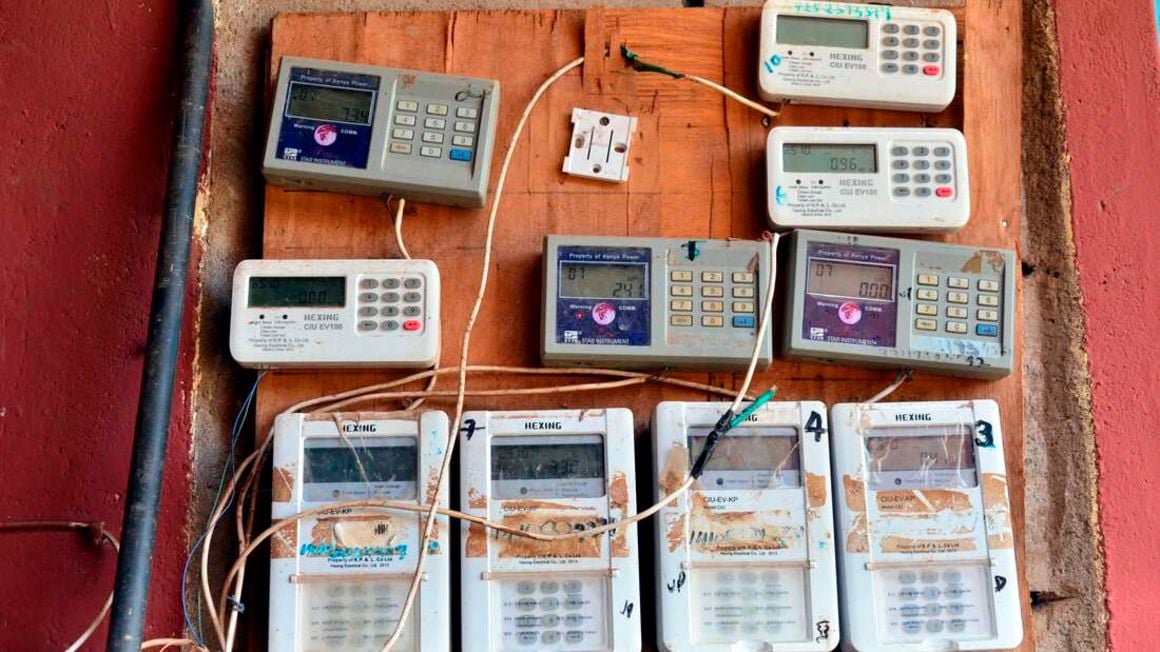Mega rip-off: The dark side of Kenya Power’s token meters contract

The Kenya Power and Lighting Company (KPLC) could be losing billions of shillings in revenue due to an acute shortage of pre-paid power meters. This has seen millions of consumers being forced to enjoy free power supply.
Unscrupulous KPLC employees are also said to be taking advantage of the free-for-all situation and selling the few available pre-paid power meters to consumers at between Sh5,000 and Sh10,000 each.
So severe is the situation that new KPLC customers are being forced to stay without electricity after paying connection fees unless they part with bribes ranging from Sh5,000 to Sh10,000 to KPLC staffers to get hoarded meters.
KPLC has not purchased new supplies of pre-paid power meters since the beginning of the year, making millions of Kenyans turn to alternative power sources such as generators and solar.
Although KPLC bigwigs did not respond to our questions — which they requested to be sent via email — sources within the power firm attributed the shortage to a prolonged case pitting it against local manufacturers and suppliers of meters.
Early this year, local meter assemblers — under the Energy Meters Assemblers and Manufacturers Association — petitioned the Public Procurement Administrative Review, accusing KPLC of favouring foreign firms in the supply and distribution of the gadgets.
The association claimed it was being locked out of the procurement of power distribution products by energy utility firm Kenya Power.
It added that KPLC was in the process of carrying out and implementing an exclusive international procurement model for power distribution products.
The products in contention included electricity meters, prepaid meters, smart meters, ordinary meters, ANSI meters, DIN rail-mounted meters, power cables, and advance metering manufacturing solutions.
“It is important to note that, as a result of the invitation by Kenya Power, the local manufacturers embarked on setting up local factories which have undergone proper accreditation, with Kenya Power having carried out the necessary factory inspection, and the factories having been subjected to quality checks and obtaining Kenya Bureau of Standards approval, as well as international accreditation,” a petition signed by Association chairman Stanley Kinyanjui stated.
Further, it noted that local manufacturers invested heavily by taking out credit facilities, employing and training proper personnel, carrying out research and design, and building proper capacity to enable them to meet Kenya Power’s demands as a result of the future long-term relationship between the local manufacturers and Kenya Power.
But after hearing the petition, PPAR dismissed it on grounds that it was filed after the lapse of the agreed period, forcing the association to seek legal redress.
The association moved to the High Court, arguing that the conditions set by Kenya Power were to edge out local firms and assemblers who had been supplying the company with the meters since 2015.
Violate Constitution
Their lawyer, Titus Koceyo, said the restrictions placed in the tender process — and favouring foreign manufacturers over local ones — violate Article 10 of the Constitution on national values and principles to promote local manufacturing.
But KPLC, through lawyer Irene Walala, defended the move to lock out local assemblers from a tender for the supply of electricity meters worth Sh2 billion, arguing that it restricted the procurement due to high failure rates of the gadgets local companies sell. Justice Jairus Ngaah subsequently barred KPLC from proceeding with the Sh2 billion tender for supply of meters.
Local firms, including Smart Meters Technology, Shenzhen Star Instrument Company, Magnate Ventures and Inhemeter Africa Company had said that KPLC locked them out of the tender process by placing limits that favour foreigners.
The judgment coincided with a move by KPLC to embark on a radical surgery of staff. It suspended 59 officials in the Supply Chain Division, saying the decision was taken in line with a recent presidential task force report that ordered a review of Power Purchase Agreements to lower high costs of power.
Since then, the country has been gripped by an acute shortage of power meters, leaving consumers at the mercy of unscrupulous KPLC staff who have taken advantage of the situation to fleece clients.
The shortage has also hampered efforts by KPLC to widen its customer base and grow sales amid an increasing number of clients shifting to alternative energy sources that are deemed less costly.
Contacted, Kevin Sang of KPLC’s communication department, downplayed the issue, with an assurance that the firm would resume procurement of power meters after the court lifted the order.
“I am sure that by January, everything shall have normalised. The court has already lifted the gagging order. But even though KPLC had been stopped from procuring the meters, the effects have not been that much,” said Sang, who declined to divulge more details.
Several businesses, industries and homes are consequently not connected to the power grid despite having paid the connectivity fees.
The chairman of the Kenya National Chamber of Commerce and Industry, Richard Ngatia, says: “KPLC should move fast to address the issue of meters shortage before people completely lose faith in it”.
For almost a year, customers have been complaining of the delayed connections.
and extortion from the firm’s wayward staffers.
Sources say old customers whose meters happen to get spoilt are forced to remain in darkness, get connected directly to the grid and therefore consume power freely, or bribe KPLC staffers to get new meters after a long wait.
“KPLC should move fast to address the issue of meters shortage before people completely lose faith in it. The power company should realize that it can only remain economically afloat through quality services to its customers,” says Richard Ngatia, the chairman of the Kenya National Chamber of Commerce and Industry.












